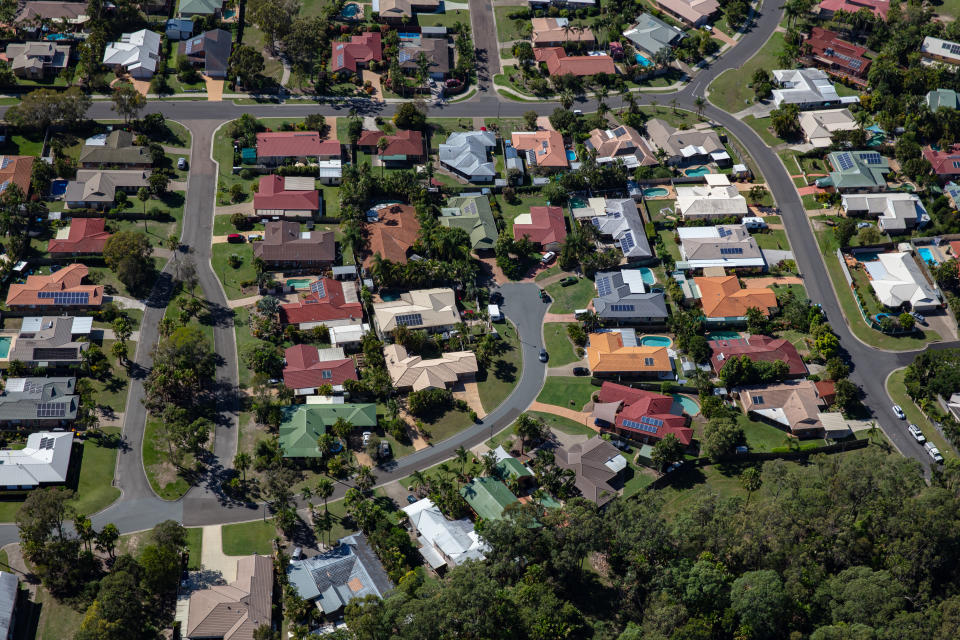Labor’s proposed negative gearing reforms given green light by major consulting firm

Labor’s proposed changes to negative gearing benefits are unlikely to have the cataclysmic impacts numerous property pundits fear, a new report has found.
Rather, the policy to reign in negative gearing and Capital Gains Tax benefits is “sound”, but how it is implemented will be key, KPMG Economics has found.
The controversial policy is “unlikely to distort” investor decisions on whether to invest in property or shares, KPMG chief economist Brendan Rynne said on Thursday.
“These policies could have some impact on investment in dwellings for rental purposes, especially in the short term, as it will take time for the developer market to produce new dwelling stock for tax approved investments.
“Overall, the policies proposed are sound, but their introduction would need to be managed carefully.”
The research also found Sydney property prices are unlike to increase until 2021, while Melbourne will be up 2.4 per cent in 2020 and 4.7 per cent in 2021.
What are the reforms?
Negative gearing benefits would be limited to investment in new dwellings and current investments would be grandfathered. Labor said this is to encourage investment in new dwellings, but argued current investors shouldn’t suffer any negative consequences as their investments would be grandfathered.
The Capital Gains Tax changes would see the discount cut from 50 per cent to 25 per cent across all investment asset classes.
Not everyone agrees
The analysis comes weeks after Aussie Home Loans’ John Symond warned negative gearing changes would have an affect akin to a “nuclear bomb” on the Australian property market.
And it comes days after Treasurer Josh Frydenberg predicted Labor leader Bill Shorten would abandon the contentious reforms.
As The Sydney Morning Herald reported, Frydenberg argued Australia’s slowing housing market would be greatly damaged by the proposed reforms.
“Labor came up with this policy at a very different time in the housing market when prices were heading up, and now they’re going down their policy is ill-suited to the times,” Frydenberg said.
“It might not be long before Bill Shorten drops it given Chris Bowen has got him in this mess.”
And the analysis also coincides with competing figures from the Property Council of Australia and ANZ.
The figures, measuring property sentiment, found confidence has dropped to its lowest level in five years.
According to the Property Council, this result highlights the “importance of good policy decisions in 2019”.
Labor is heading to a mid-year election with negative gearing reform a major policy pillar.
“It’s a message our political leaders need to heed, with the final report of the banking royal commission due in February, a state election in our most populous state and biggest property market (New South Wales) in March, and then a federal election in May,” Property Council chief executive Ken Morrison said.
“It’s crucial that our policy-makers take the longer term view and support sensible policies that sustain and stimulate the growth of Australia’s biggest industry which supports 1.4 million jobs and delivers the places our growing population needs to live and work.”
Now is not the time to make changes which undermine certainty, Morrison added.
Commenting on the ANZ/Property Council results, Frydenberg said Labor’s policy changes were “designed to send the value of people’s homes down and to send the cost of rents up”.
While 2018 is considered the worst year for property markets since the global financial crisis in 2008, with values nationwide sliding 4.8 per cent, recent analysis by Moody’s Analytics and CoreLogic warns 2019 is unlikely to bring much joy either.
What does Australia think?
Fairfax Ipsos polling performed late last year found Australians are split when it comes to negative gearing.
While 43 per cent support the changes, 44 per cent are against and the remainder are unsure.
Make your money work with Yahoo Finance’s daily newsletter. Sign up here and stay on top of the latest money, news and tech news.
Now read: Sydney no longer the most expensive city to rent in Australia
Now read: Revealed: The top 10 Aussie suburbs where homes sold the fastest in 2018
Now read: This is how much Aussie housing markets will fall in 2019

 Yahoo Finance
Yahoo Finance 
